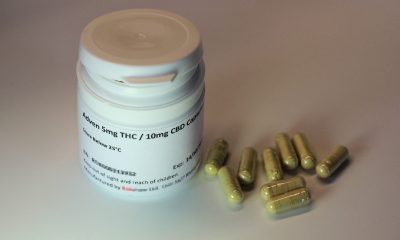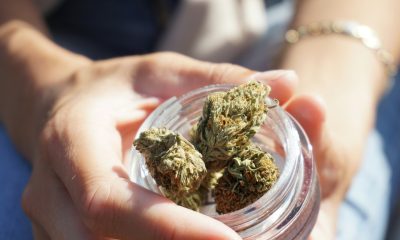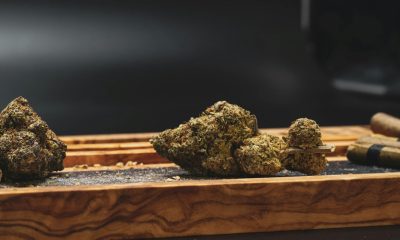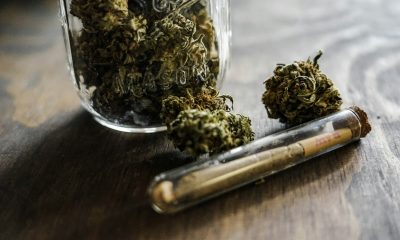Cannabis
Panama, the First Central American Country to Legalize Medical Cannabis
Panama’s cannabis law establishes legal actions with prison sentences ranging from 10 to 15 years for those who sow, cultivate, keep or guard seeds or plants that can be used to produce illicit drugs or their derivatives for commercialization, as well as those who extract, manufacture or commercialize illicit drugs. The law 242 could make Panama the first Central American country to legalize medical cannabis.
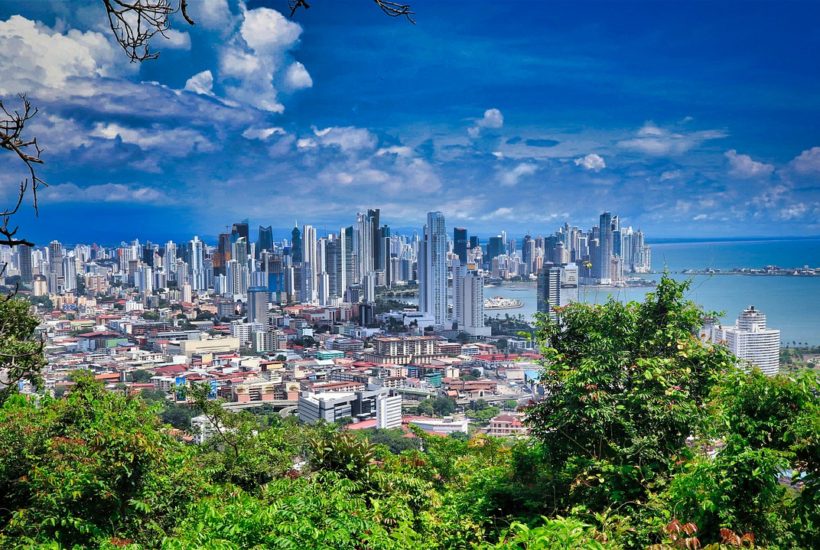
Panama became the first Central American country to approve the use of cannabis for medicinal and therapeutic purposes, after President Laurentino Cortizo sanctioned a law that creates a regulatory legal framework for its use, monitored, and controlled access.
The first draft bill on medical cannabis had been submitted to the National Assembly of Deputies of Panama five years ago, and the law that finally came to fruition was proposed by the deputy and president of this Parliament, Crispiano Adames of the governing party.
Read more about the legalization of medical cannabis in Panama and find other important cannabis news with the Hemp.im mobile app.
Now, the new law 242, dated October 13th, 2021, enters a new phase that corresponds to its regulation
The Panamanian State institutions, such as the Ministry of Health (MINSA), the Ministry of Agricultural Development, the Customs Authority, patients’ organizations, among others, have 90 days to establish its regulations.
Elvia Lau, national director of Pharmacy and Drugs at MINSA of Panama, told SciDev.Net that this law puts the country at the forefront on this issue for therapeutic, medical, veterinary, scientific, and research purposes, because it creates a regulatory framework that allows the controlled and monitored use and access of medical cannabis and its derivatives; it also contemplates allowing licenses for manufacturing and research.
“We are organizing ourselves to make its regulation and we have already talked with the Minister of Health of Panama, Luis Francisco Sucre, because it is important as a governing body, to regulate in this matter, together with other institutions,” he said.
Law 242 mentions in its content the conformation of a technical council of medical cannabis, attached to the Ministry of Health, which will be in charge of the design and follow-up of the objectives of the law. It is confirmed by nine people that correspond to four ministries: Health (who presides it), Public Security, Agriculture and Livestock and Commerce and Industries, the directors of Customs and the Social Security Fund, two representatives of patients with chronic and degenerative diseases, and a representative of medical-scientific research in medical cannabis.
In addition, it contemplates the formation of an Agronomic Advisory Council, attached to the Ministry of Agricultural Development for the design and monitoring of agronomic production. It will have seven members representing the College of Agricultural Engineers of Panama, the Institute of Agricultural Innovation of Panama, the Association of Controlled Environment Producers, and a delegate of medical cannabis producers with plantations.
Panama’s cannabis law establishes legal actions with prison sentences ranging from 10 to 15 years for those who sow, cultivate, keep or guard seeds or plants that can be used to produce illicit drugs or their derivatives for commercialization, as well as those who extract, manufacture or commercialize illicit drugs.
Carlos Ossa, activist, multiple sclerosis patient, and member of the organization Buscando Alternativas, who participated throughout the process of shaping the law, calls it a great step for patients because it opens this opportunity to prevent patients from committing illegalities out of necessity or interacting with the black market where the quality of the products for sale is not certified. But Ossa stresses that until the law is regulated, patients are exposed to buy medicines and subject to commit illegalities.
For his part, Heriberto Franco, a researcher at the Autonomous University of Chiriqui (Panama), this law now opens a new opportunity for the scientific community to initiate research in the country, and its results can be applied to medicine.
Until now, because Panama lacked a law of this type, it was considered illegal to do research with the cannabis plant. However, the regulation of the new law is awaited in order to make this possibility a reality.
In this sense, the regulation puts the country in a new and beneficial position for science and for patients, Lau added to SciDev.Net.
Among other details, in the law, medical cannabis is indicated to alleviate chronic pain or nerve injuries; to control nausea and vomiting, as well as ailments such as Alzheimer’s, Amyotrophic Lateral Sclerosis, HIV/AIDS, cancer, Crohn’s disease, epilepsy, seizures, glaucoma, multiple sclerosis, and muscle spasms. In Panama, there are cases of children with epilepsy who suffer up to 400 convulsions daily and who are waiting for the legalization of the drug to alleviate their ailments.
The deputy and president of the National Assembly, Crispiano Adames, said at the time about this law that “the greatest beneficiaries will be those people who experience pain on a daily basis”.
__
(Featured image by salonic1 via Pixabay)
DISCLAIMER: This article was written by a third party contributor and does not reflect the opinion of Born2Invest, its management, staff or its associates. Please review our disclaimer for more information.
This article may include forward-looking statements. These forward-looking statements generally are identified by the words “believe,” “project,” “estimate,” “become,” “plan,” “will,” and similar expressions. These forward-looking statements involve known and unknown risks as well as uncertainties, including those discussed in the following cautionary statements and elsewhere in this article and on this site. Although the Company may believe that its expectations are based on reasonable assumptions, the actual results that the Company may achieve may differ materially from any forward-looking statements, which reflect the opinions of the management of the Company only as of the date hereof. Additionally, please make sure to read these important disclosures.
First published in EE, a third-party contributor translated and adapted the article from the original. In case of discrepancy, the original will prevail.
Although we made reasonable efforts to provide accurate translations, some parts may be incorrect. Born2Invest assumes no responsibility for errors, omissions or ambiguities in the translations provided on this website. Any person or entity relying on translated content does so at their own risk. Born2Invest is not responsible for losses caused by such reliance on the accuracy or reliability of translated information. If you wish to report an error or inaccuracy in the translation, we encourage you to contact us.

-

 Impact Investing2 weeks ago
Impact Investing2 weeks agoEnfinity Launches First Solar Plant in Italy with Microsoft
-

 Crypto2 hours ago
Crypto2 hours agoBitcoin Wavers Below $70K as Crypto Market Struggles for Momentum
-

 Markets1 week ago
Markets1 week agoSilver Dips Sharply, While Gold Gains Amid Mixed Stock Market
-

 Crowdfunding2 weeks ago
Crowdfunding2 weeks agoEvenFi Launches Run-Off Service to Protect Investors as Crowdfunding Platforms Exit
